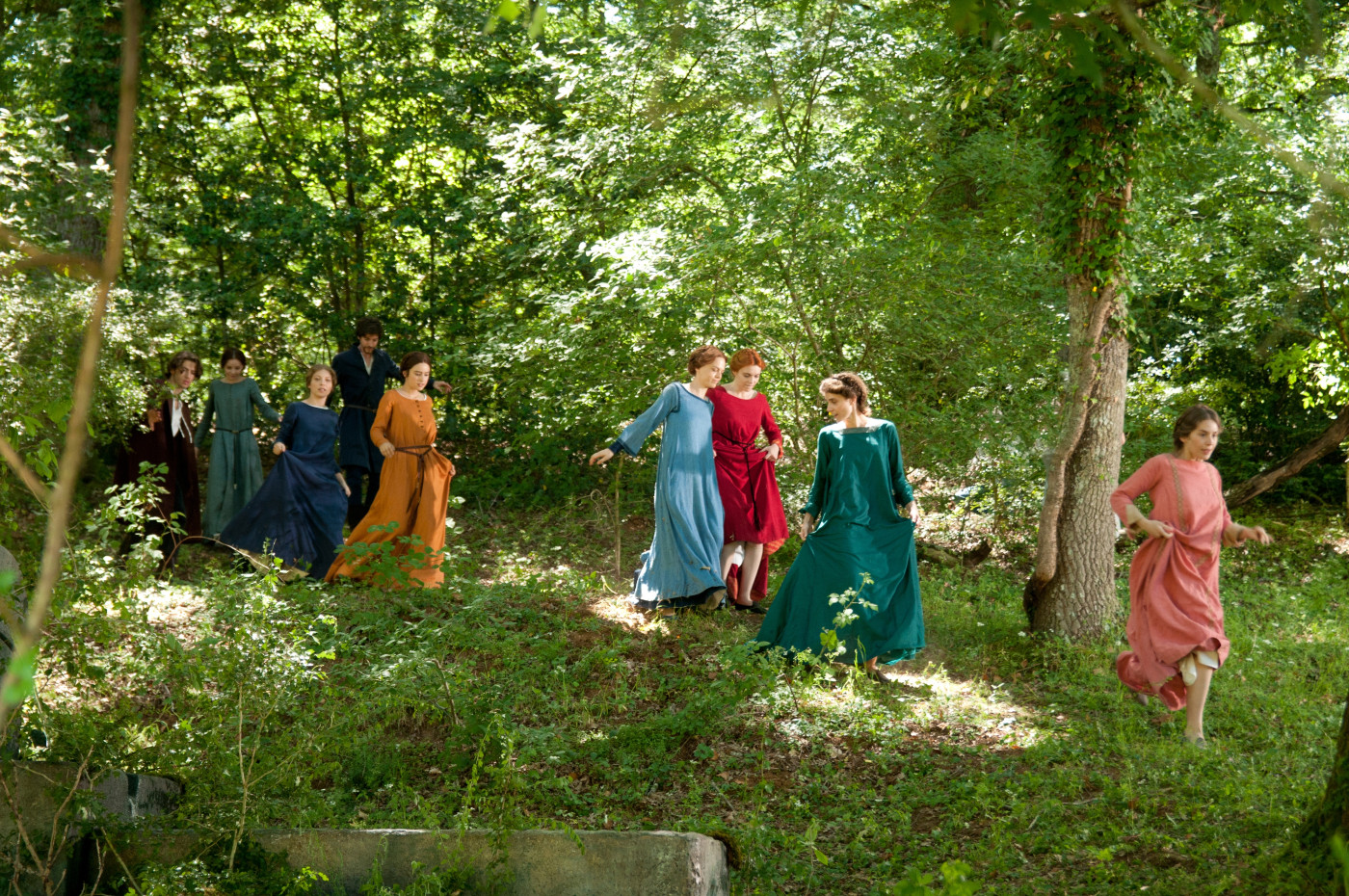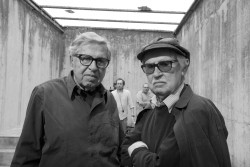
Medieval Florence is beset by the Black Death. A group of nobles decide to escape to the countryside. In a villa surrounded by nature the young men and women spend time playing games and telling stories: the focus of each, whether dramatic or grotesque, is love as an antidote to all hardship and despair. The inspiration for the work, which testifies to the boundless imagination and directorial craft of the renowned directing duo, comes from one of the oldest treasure troves of world literature – Boccaccio’s Decameron.


Delving into Boccaccio’s Decameron, filmmaking duo Paolo and Vittorio Taviani have come up with yet another exquisite work in which the significance of art for human existence is conveyed more metaphorically than in their earlier film Caesar Must Die, where a group of prisoners discover Shakespeare. Ten young people who find refuge from the plague out in the hills and tell each other stories at mealtimes, discover the power of words as an antidote to the scourge of the times. For their reading of The Decameron the Tavianis dispensed with all the indelicate elements which popularised it over the centuries. Unlike other film adaptations, they sought a reconstruction of plague-ravished Florence which would allow them to give greater prominence to the splendour of the Tuscan countryside and the curative power of love that dominates the tales chosen from The Decameron, regardless of where they appear in the book. In the filmmakers’ conception, it is the feeling of love perceived by the narrator and reader which represents a catharsis, providing strength to face the evil of the world around us and also within us.
Eva Zaoralová (2012)
121 min / Color, DCP
Director Paolo Taviani, Vittorio Taviani
/ Screenplay Paolo Taviani, Vittorio Taviani podle souboru novel Dekameron / based on the collection of novellas Decameron by Giovanni Boccaccio
/ Dir. of Photography Simone Zampagni
/ Music Giuliano Taviani
/ Editor Roberto Perpignani
/ Art Director Emita Frigato
/ Producer Donatella Palermo, Luigi Musini
/ Production Stemal Entertainment, Cinemaudici, Barbary Films
/ Coproduction Rai Cinema
/ Cast Lello Arena, Paola Cortellesi, Carolina Crescentini, Flavio Parenti, Vittoria Puccini
/ Sales mk2 Films
/ Distributor Film Europe s.r.o.

Paolo (b. 1929, San Miniato, Italy), pictured on the left, and Vittorio (b. 1931, San Miniato, Italy) Taviani are two of the most important Italian filmmakers around today. Paolo studied art and Vittorio studied law, both in Pisa, yet they were already making their first short movie together in 1954, San Miniato, July ’44 (San Miniato, luglio ’44). As a directing duo they earned international acclaim particularly for their political, socially conscious and socio-critical films in which they often turned to events in history and, on several occasions, adapted the works of classic authors. Their greatest global successes include Father and Master (Padre padrone, 1977 – Palme d’Or and FIPRESCI Prize at Cannes), The Night of the Shooting Stars (La notte di San Lorenzo, 1982 – Jury’s Special Grand Prix at Cannes) and Caesar Must Die (Cesare deve morire, 2012 – Golden Bear at the Berlin IFF), which was screened at Karlovy Vary in 2012.
Film Europe s.r.o.
V Jámě 1, 11000, Praha
Czech Republic
Phone: +420 608 989 623
E-mail: [email protected]
mk2 Films
55, rue Traversière, 75012, Paris
France
Phone: +33 144 673 111
E-mail: [email protected]

Ivan Hronec
Cinema Representative, Distributor, Festival Organizer, TV Representative
First-hand brews throughout the year.
Be among the first to learn about upcoming events and other news. We only send the newsletter when we have something to say.